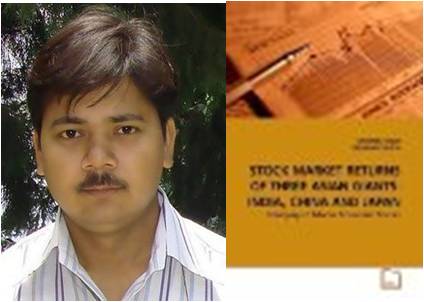Dear Learned Audiences,
History is not just a forte of Kings, Emperors, Social Workers, Leaders and so on only. It keeps on silently recording the numerous developments happening in the various spheres of learning too. Sometimes, it may be in the form of thought other day it may be principles and following day may be for practices.
Finance in History
If you are doomed to repeat history, let’s hope you can pick your era. Once upon a time, business bankruptcies resulted in jail time (if you were lucky), treasurers defended their funds with a sword, and financial planning was tested by plagues and fire. Things improved during the American Revolution, when the father of our country also proved to be one of its best bookkeepers. But accounting couldn’t keep up during the Industrial Revolution, with disastrous consequences for workers. If you tend to think of history as the third quarter of the last fiscal year, it may be time to learn a little bit more about your profession’s checkered past.
The 17th-century business world revealed in Samuel Pepys’s famous diary is not so far removed from our own.
“Most happy in the keeping of all my accounts, for that after all the changings and turnings necessary in such an account, I find myself right to a farthing in an account of 127,000 pounds.” — Samuel Pepys’s diary entry, August 20, 1666
Public officials in 17th-century England had not yet refined the notion that one has to pay to play; that is, pony up political contributions to obtain government contracts or favors. But when Samuel Pepys was an important naval administrator in London during the mid-1660s, the basic idea was well understood. Like others similarly situated, Pepys gladly accepted gifts, and he recognized the debt he incurred in accepting them.
We know this from reading Pepys’s diary, regarded by many as the greatest in the English language. Between January 1, 1660, and May 31, 1669, Pepys (rhymes with “keeps”) chronicled his everyday life, from his professional concerns to his sexual escapades, from the state of the financial accounts he kept to the painful progress of his kidney stone. The practice of diary keeping began to catch on during the 17th century, according to Pepys biographer Claire Tomalin. But his is prized for its confessional insights, large cast of characters, accounts of significant events, and entertaining narrative, combining to reveal a singular sensibility.
“What is extraordinary is that he went into areas no one else considered recording, looked at himself with as much curiosity as he looked at the exterior world, weighing himself and the world equally in the balance,” observes Tomalin in Samuel Pepys: The Unequalled Self (2002). Writing for his eyes only, Pepys used a private shorthand and, in especially delicate passages, French. His six-volume diary was only deciphered and published in the 1820s, more than 100 years after his death.
To historians, Pepys was an invaluable chronicler of a period when the press was censored by the government of Charles II. From him we have poignant accounts of the Great Plague, which decimated England in 1665, and of the Great Fire of London, which destroyed half the city in 1666. On a more personal scale, Pepys supplied entertaining accounts of his financial wheelings and dealings as a government administrator.
“The Diary sends a beam of light into the way in which government officers and businessmen worked together, through clubs, through hospitality, through trips that mixed business and pleasure, through well-chosen and discreetly given presents and through cultivating the friendship of those in a position to be helpful in giving contracts or licenses,” observes Tomalin. “The circumstances were different, but there is something eerily familiar about it too: today’s arms and building contracts, entertainment of clients, quiet words at the club, conferences in luxury hotels, boardroom rivalries and contributions to favourite charities are all in the same tradition. Pepys was, among other things, mapping a recognizably modern world.”
Accounting for the Royal Navy
As one learns from the diary, Pepys was ambitious, intelligent, and well connected. Born in 1633, he never became a sailor, but gained an accounting post in the British Navy and turned it to steady profit. Pepys had the good fortune to capitalize on his family’s one political connection: he was a distant cousin to Sir Edward Montagu, later the Earl of Sandwich. Oliver Cromwell put Montagu in joint command of the British fleet, and the 27-year-old Pepys sailed in on Montagu’s coattails. In 1660 Pepys was appointed Clerk of the Acts to the Navy Board, and as such was responsible for requesting funds from Parliament and dispensing them to build the navy and keep it afloat.
Pepys advanced steadily during the next 13 years, eventually becoming Secretary of the Admiralty. Anyone who wanted a government contract to supply the Royal Navy had to go through his office. Shipbuilders, victuallers, slopsellers, and many others did their best to curry favor with the young finance minister.
On August 16, 1660, in the first year of his diary, Pepys recorded a telling conversation he had with Lord Sandwich. Riding across town in a coach, Sandwich told Pepys that he hopes the Clerk of the Acts position will be good to him, saying “it was not the salary of any place that did make a man rich, but the opportunity of getting money while he is in the place.”
Pepys took this advice to heart. Once sworn in as Clerk of the Acts, he almost immediately found himself on the receiving end of a steady stream of gifts, from barrels of oysters, wine, and brandy to gold coins and silver plate. In 17th-century London, merchants clearly considered these donations to be money well spent, just another cost of doing business.
On April 3, 1663, the diarist described a defense used by politicians to this day, which basically consists of sticking to an absurdly literal, and narrow, truth. After a certain Captain Grove gives him a letter that he can tell contains money, Pepys wrote: “But I did not open it till I came home to my office; and there I broke it open, not looking into it till all the money was out, that I might say I saw no money in the paper if ever I should be questioned about it.”
Another business associate gave him “a present for his wife,” a package said to contain a pair of gloves. On the evening of February 2, 1664, Pepys noted: “When I came home, Lord! in what pain I was to get my wife out of the room without bidding her go, that I might see what these gloves were; and by and by, she being gone, it proves a payre of white gloves for her and forty pieces in good gold, which did so cheer my heart that I could eat no victuals almost for dinner for joy to think how God do bless us every day more and more.”
Plague, Fire, and Fortune
Ironically, biographer Tomalin says the plague year of 1665 was one of Pepys’s happiest. During it his fortune quadrupled, thanks in part to two additional appointments: treasurer for Tangier and surveyor-general of victualling for the navy. Meanwhile, as his fortune grew, so did the plague. From June to September, deaths from the disease doubled nearly every week.
“But, Lord! to see how the plague spreads,” wrote Pepys on June 16. “It being now all over King’s Streete, at the Axe, and next door to it, and in other places.” At its height, in the last week of August 1665, the plague killed nearly 10,000 Londoners. “Thus this month ends with great sadness upon the publick, through the greatness of the plague every where through the kingdom almost,” wrote Pepys on August 31. “Every day sadder and sadder news of its encrease.”
The Great Fire of London, which began on September 2, 1666, and engulfed most of the central part of the city, helped quell the plague by killing the city’s disease-infected rats. As the fire raged toward his home, Pepys packed up his gold and silver and rode by cart in his nightshirt to a friend’s, safely outside the city. What he could not transport, he buried. Luck was on his side, however, and his neighborhood was spared.
As for the Lord of Sandwich, embezzlement was his downfall. While at war with the Dutch, Sandwich’s fleet captured several Dutch ships, including some loaded with goods from the East Indies. Instead of delivering these spoils of war to the King, Sandwich let the hatches be broken and divvied up the prizes with his fleet’s captains. His share’s worth came to 5,000 pounds. When news of this reached the King, Sandwich was stripped of his command. (He would later be reappointed and died in battle in 1672.)
Pepys’s assessment of the fall of “his Lord” is less forgiving. On December 31, 1665, he wrote: “The great evil of this year, and the only one indeed, is the fall of my Lord of Sandwich. The Duke of Albemarle goes with the Prince to sea this next year, and my Lord very meanly spoken of; and, indeed, his miscarriage about the prize goods is not to be excused, to suffer a company of rogues to go away with ten times as much as himself, and the blame of all to be deservedly laid upon him.”
Fearing for his eyesight, Pepys brought his diary to a close in 1669. He would later keep two other journals before his death in 1703, but Tomalin notes that they have “none of the qualities of the first Diary. Something essential was missing — some grit that had caused him to produce his pearl.” The luster of that pearl, and the qualities of the man, can be seen in the entry for Christmas day, December 25, 1666:
“To church in the morning, and there saw a wedding in the church, which I have not seen many a day; and the young people so merry one with another, and strange to see what delight we married people have to see these poor fools decoyed into our condition, every man and woman gazing and smiling at them. Here I saw again my beauty Lethulier. Thence to my Lord Bruncker’s by invitation and dined there, and so home to look over and settle my papers, both of my accounts private, and those of Tangier, which I have let go so long that it were impossible for any soul, had I died, to understand them, or ever come to any good end in them. I hope God will never suffer me to come to that disorder again.”
Observations from Samuel Pepys’s Diary On dog days:
“By coach to St. James’s and there did our business, which is mostly every day to complain of want of money.” (July 13, 1666)
On hard work: “How little merit do prevail in the world, but only favour; and for myself, chance without merit brought me in; and diligence only keeps me so, and will, living as I do among so many lazy people that the diligent man becomes necessary, that they cannot do anything without him.” (November 1, 1665)
On success: “But, Lord! to see what successe do, whether with or without reason, and making a man seem wise notwithstanding never so late demonstration of the profoundest folly in the world.” (August 15, 1666)












Impressions of Visitor & Few Replies